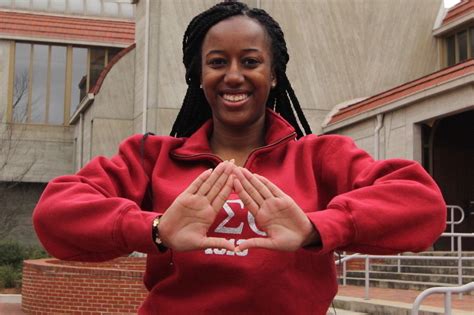Introduction
Greek life at Emory University is a vibrant and diverse community that offers a wide range of social, academic, and leadership opportunities for students. With over 30 fraternities and sororities on campus, embodying approximately 20% of the student body, Greek life is an integral aspect of the Emory experience. This article delves into the history, values, and benefits of Greek life at Emory, providing prospective and current students with a comprehensive understanding.

History of Greek Life at Emory
Greek letter organizations first emerged at Emory University in the late 19th century. The first fraternity, Alpha Tau Omega, was founded in 1891, followed by the establishment of several sororities in the early 20th century. Over the years, Greek life has evolved and grown, with new organizations being chartered and existing ones adapting to meet the changing needs of students.
Values of Greek Life at Emory
At its core, Greek life at Emory is based on the principles of friendship, scholarship, service, and leadership.
- Friendship: Greek organizations provide opportunities for students to connect with people who share similar interests and values, creating lasting friendships and a sense of community.
- Scholarship: Many Greek organizations emphasize academic excellence and offer resources such as study groups, scholarships, and mentorship programs.
- Service: Greek organizations engage in various philanthropic activities, including volunteer work, fundraisers, and community service projects, fostering a spirit of giving back.
- Leadership: Greek life provides platforms for students to develop leadership skills through holding positions within their organizations and participating in campus-wide leadership initiatives.
Benefits of Greek Life at Emory
Joining a Greek organization at Emory can offer numerous benefits for students:
- Enhanced Socialization: Greek life provides opportunities to meet new people, expand social networks, and participate in social events and activities.
- Improved Academics: Research shows that students involved in Greek life tend to have higher GPAs and graduation rates than non-members due to access to academic support and mentorship.
- Career Development: Greek organizations offer professional development programs, networking opportunities, and connections to alumni and industry professionals.
- Personal Growth: Greek life fosters personal growth and self-confidence through leadership roles, community service, and the development of interpersonal skills.
- Alumni Network: Greek organizations offer access to a vast alumni network, providing opportunities for mentorship, job placement, and lifelong connections.
Diversity and Inclusion in Greek Life at Emory
Emory University values diversity and inclusion in all aspects of campus life, including Greek life. Greek organizations actively recruit and welcome students from all backgrounds, regardless of race, ethnicity, religion, gender identity, sexual orientation, or ability. Many Greek organizations have also implemented initiatives to promote diversity and inclusion within their chapters and the broader Greek community.
Challenges of Greek Life at Emory
As with any community, Greek life at Emory is not without its challenges. Some common concerns include:
- Time Commitment: Greek life can require a significant time commitment, which may be difficult for some students to balance with academic and other extracurricular activities.
- Financial Costs: Joining a Greek organization can involve fees and dues, which may be a financial burden for some students.
- Social Pressure and Conformity: Some students may experience pressure to conform to certain social norms or behaviors within their Greek organization, which can be uncomfortable or stressful.
- Hazing and Safety Concerns: While hazing is strictly prohibited by Emory University, it is important for students to be aware of their rights and responsibilities regarding hazing and other forms of misconduct.
Strategies for a Positive Greek Life Experience
To ensure a positive Greek life experience, students should consider the following strategies:
- Research and Explore: Before joining a Greek organization, take the time to research different options and attend informational events to find a chapter that aligns with your interests and values.
- Manage Time Wisely: Set clear boundaries for your time commitments and prioritize your academics before social activities.
- Communicate with Family and Friends: Keep your family and friends informed about your Greek life involvement and ask for their support when needed.
- Seek Support: If you encounter any challenges or concerns, don’t hesitate to reach out to your chapter advisor, Greek life administration, or other trusted individuals.
- Participate Responsibly: Follow all university policies and Greek organization guidelines and prioritize your well-being and safety.
Tips and Tricks for Making the Most of Greek Life at Emory
- Attend New Member Education: Take advantage of new member education programs to learn about the history, values, and expectations of your organization.
- Get Involved in Committees and Activities: Participate in various committees and activities within your chapter to develop your skills and connect with other members.
- Build Relationships with Alumni: Reach out to alumni of your organization to learn about their experiences and seek career advice or mentorship.
- Take Advantage of Leadership Opportunities: Actively seek out leadership positions within your chapter and on campus to enhance your leadership skills and make a meaningful contribution.
- Embrace the Community: Get to know members of other Greek organizations and participate in campus-wide events to foster a sense of community and respect.
Conclusion
Greek life at Emory University offers a diverse and enriching experience for students seeking friendship, scholarship, service, and leadership development. By understanding the history, values, benefits, and challenges of Greek life, students can make informed decisions about their involvement and maximize their positive experience. Emory University supports Greek life as a valuable complement to the academic experience and encourages students to explore the opportunities available within the Greek community.
